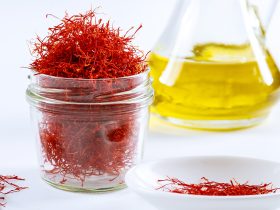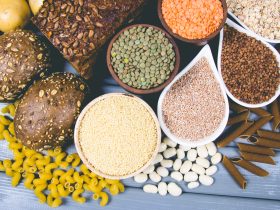For individuals managing Chronic Obstructive Pulmonary Disease (COPD), maintaining adequate nutrition is vital for sustaining energy levels and overall well-being.
However, the challenges posed by COPD symptoms, such as fatigue and difficulty breathing, can make meal consumption a daunting task.
In this comprehensive guide, we explore the importance of establishing a consistent breakfast routine tailored to COPD patients’ needs and provide insights into crafting a nutritious diet plan to support optimal health.
From nutrient-dense foods to hydration strategies, let’s delve into the 15 practical tips for enhancing nutrition and managing COPD symptoms effectively.
- A Consistent Breakfast
Breakfast holds significant importance, especially for individuals with COPD. Many people with COPD experience fatigue later in the day, making it challenging to consume substantial meals.
To address this, prioritize having your largest meals earlier in the day when your energy levels are highest.
In addition, aim to incorporate 25 to 30 grams of fiber into your daily diet. Starting your day with a bowl of bran cereal and whole wheat toast is a nutritious choice that sets you on the path to meeting your fiber goals.
- Eat Nutrient-Dense Foods
Eating properly can be crucial in boosting your energy levels when dealing with COPD (Chronic Obstructive Pulmonary Disease). If you find yourself losing weight, reintroducing some “comfort foods” into your diet may be beneficial.
It’s important to note that breathing with COPD burns significantly more calories, about 10 times more than usual.
Therefore, for individuals concerned about weight management, opting for smaller portions of nutrient-rich foods featured in this slide show can help control calorie intake while still providing the necessary fuel your body requires to maintain optimal health and well-being.
- Eat More Fresh Fruits and Veggies
Incorporating fresh fruits and vegetables into your diet whenever possible offers significant benefits. These foods are rich in essential nutrients, vitamins, and minerals that are vital for overall health.
Opting for a balanced and healthy diet, rather than relying solely on a meat-and-potatoes regimen, contributes to improved overall health and provides sustained energy levels.
- Get Quick Nutrients with Smoothies and Shakes
Including foods rich in calcium and vitamin D is crucial for maintaining healthy bones, especially for individuals with COPD. Milkshakes and smoothies serve as ideal snacks for many COPD patients.
Opt for milk or yogurt, opting for lower-fat varieties if weight management is a concern. Fresh fruits can be added to these shakes for additional nutrients and fiber.
In addition, canned and fortified shakes provide a convenient and hassle-free option, as they are ready to consume straight from the fridge.
- Add Cheese to Your Meals
Adding cheese to dishes such as potatoes, rice, or vegetables can significantly enhance both the nutrient and caloric content of any meal. Incorporating cheese provides an extra source of calcium, which is beneficial for maintaining bone health.
This is particularly important for individuals with COPD, as certain medications prescribed for the condition can lead to brittle bones.
For those looking to benefit from the nutrients in cheese without consuming excess calories, opt for varieties labeled as “part-skim” or “reduced-fat.” These options offer a lower calorie count while still providing valuable nutrients like calcium.
- Drink Hydrating Fluids
Ensuring adequate intake of non-caffeinated fluids is crucial for maintaining thin mucus in your airways, facilitating easier clearance of the lungs. During meals, prioritize eating before drinking fluids to avoid feeling full prematurely, allowing you to consume a solid and nutritious meal effectively.
- Opt for Healthy Snacks
If you’re aiming to gain weight, it’s beneficial to keep high-calorie, nutritious snacks readily available.
Consider having a handful of nuts or a pre-packaged pudding cup on hand for quick and convenient snacks. Opt for low-fat or nonfat pudding cups to minimize intake of unhealthy cholesterol and saturated fat.
Additionally, crackers paired with cheese or fresh fruits and vegetables with dip are other wholesome snack options to help increase your calorie intake.
- Pay Attention to Fiber Intake
Since it’s unlikely that you’ll meet your daily fiber intake of 25 to 30 grams solely from breakfast, it’s important to incorporate high-fiber foods into your other meals as well.
For lunch, consider enjoying a bowl of low-sodium split pea or lentil soup, which is an excellent source of fiber.
Additionally, include foods such as dry beans, bran, brown rice, whole-grain cereals, and breads, as well as fresh fruits and vegetables, to ensure you’re meeting your fiber needs throughout the day.
- Get Calories from Eggs
If you’re seeking ways to increase your calorie intake, consider incorporating an additional egg into your recipes.
Add a whole egg to your next meatloaf mixture before baking, or experiment with adding it to macaroni and cheese for added richness.
However, exercise caution and avoid consuming raw eggs, such as those sometimes used in Caesar salad dressing, to reduce the risk of foodborne illness.
- Increase Protein Intake
Protein plays a crucial role in everyone’s diet, but it’s particularly vital for individuals with COPD. To boost your protein intake, consider adding nonfat dry milk, protein powder, or soy protein powder to various dishes such as mashed potatoes, casseroles, soups, and hot cereal.
Peanut butter is another excellent option to increase both calorie and protein intake without requiring much time or effort for preparation. It’s essential to include protein-rich foods in every meal for individuals with COPD.
Some good sources of protein include eggs, lean meat, fish, poultry, legumes, and nuts.
- Milk & Oatmeal
Hot oatmeal is an excellent choice for breakfast, especially for individuals with COPD. It’s not only easy to eat but also packed with essential nutrients like fiber, calcium, iron, and vitamin A.
To boost its nutritional value, consider preparing it with milk instead of water. Milk adds extra protein and calcium to your meal, making it more nourishing.
Moreover, oatmeal’s high fiber content can aid in weight management by promoting a feeling of fullness with fewer calories. For a nutritious and low-calorie option, top your oatmeal with berries instead of sweeteners.
- Eat More Often
If you experience fatigue while eating or struggle with breathing due to feeling too full, consider eating smaller meals more frequently.
Opting for four to six small meals throughout the day instead of three large ones can prevent you from feeling overly full and require less energy during eating. This approach can help reduce fatigue and ensure that you derive the necessary nutrients from your food.
Also, taking time to relax and rest before meals can further enhance your eating experience.
- Be Cautious of Gas-Inducing Foods
While foods like a bean burrito offer valuable protein and fiber, it’s essential to proceed with caution. Certain foods that contribute to gas or bloating can exacerbate breathing difficulties.
Common offenders include carbonated beverages, greasy fried foods, heavily spiced dishes, beans, and vegetables like cabbage and broccoli.
However, individual reactions vary. Keeping a food diary can help you identify which foods affect you negatively, allowing you to avoid them in the future.
- Eat Starchy Vegetables
Starchy vegetables such as beets, corn, carrots, and winter squash are packed with essential vitamins and minerals and boast higher calorie content compared to other vegetables. You can incorporate them into your meals in various delicious ways.
For instance, a baked squash casserole can serve as a delightful side dish or even a satisfying main course.
Similarly, soups offer a savory and comforting option to enjoy these nutrient-rich vegetables to the fullest.
- Limit or Avoid Caffeinated Drinks
Caffeine is not recommended for individuals with COPD due to its potential to interfere with certain medications and induce nervousness and restlessness, which can worsen symptoms.
It’s advisable to avoid or restrict the consumption of coffee, tea, caffeinated sodas, and even chocolate, as they all contain caffeine.
















Find Us on Socials